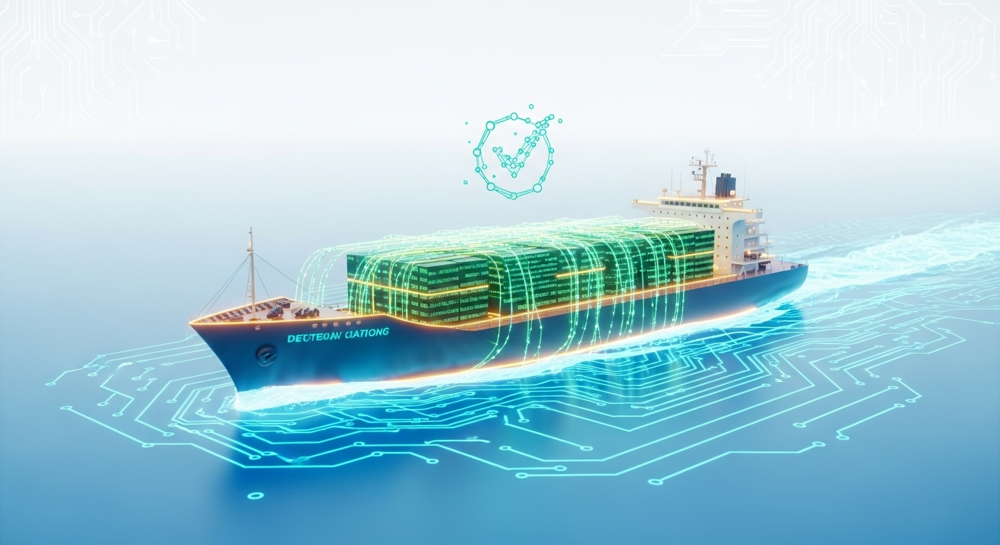Mastering Maritime Compliance: Vessel Sanctions Screening for Shipping and Trade

The global maritime industry, the backbone of international trade, navigates a complex sea of regulations, with sanctions screening standing as one of its most critical challenges. For shipping companies, logistics providers, and trade finance institutions, ensuring that vessels, their owners, and operators are not on any sanctions list is paramount. Failure to comply can lead to crippling fines, reputational damage, and severe operational disruptions.
The Growing Complexity of Maritime Sanctions
In an increasingly volatile geopolitical landscape, sanctions lists are constantly updated and expanded. This dynamic environment makes manual screening processes not only inefficient but also highly prone to error. Research consistently highlights the immense pressure on compliance teams to keep pace. For instance, a report by Refinitiv found that financial institutions spend an average of USD 1.8 million annually on sanctions compliance, a significant portion of which is dedicated to screening.
Consider the logistical nightmare: a ship carrying cargo from one port to another might involve multiple jurisdictions, owners, charterers, and insurers, each subject to different regulatory frameworks (e.g., OFAC, EU, UN, UK). Identifying a sanctioned entity or vessel amidst this intricate web requires specialized tools and expertise. The risk of inadvertently facilitating illicit trade, even through a legitimate transaction, is a constant threat.
Introducing Onboarding Buddy’s Vessel Sanctions Check API
Onboarding Buddy offers a powerful solution designed to automate and streamline vessel sanctions screening: the Vessel Sanctions Check API. This API provides an efficient, accurate, and real-time method for verifying if a vessel is associated with any sanctions list, helping businesses maintain compliance and mitigate risk.
How it Works: API in Action
Our Vessel Sanctions Check API integrates seamlessly into your existing systems, allowing for automated lookups based on vessel names or other identifying information. It leverages comprehensive global sanctions databases, ensuring that you have access to the most current information.
Here’s a Python example demonstrating how to use the API to check a vessel:
import requests
headers = {
"ob-app-key": "<your-app-key>",
"ob-api-key": "<your-api-key>",
"ob-api-secret": "<your-api-secret>",
"Content-Type": "application/json"
}
payload = {
"name": "HWANG GUM SAN 2"
}
response = requests.post(
"https://api.onboardingbuddy.co/sanction-service/check/vessel",
headers=headers,
json=payload
)
response.raise_for_status()
print(response.json())This simple request sends the vessel's name to our API. The response will indicate whether a match was found and, if so, provide detailed information about the sanctions, including the program, additional information, and any linked entities or individuals. For instance, if 'HWANG GUM SAN 2' is on a sanctions list, the API would return a `matched: true` along with records detailing its program, vessel type, flag, and other relevant data, as shown in the API specification's example.
Key Benefits of Automated Vessel Sanctions Screening
- Enhanced Accuracy: Reduce human error inherent in manual checks by leveraging up-to-date, comprehensive sanctions data.
- Increased Efficiency: Automate screening processes, significantly cutting down the time and resources spent on compliance.
- Real-time Intelligence: Access the latest sanctions updates instantly, critical for navigating rapidly changing regulatory landscapes.
- Reduced Risk: Proactively identify and avoid dealing with sanctioned vessels, minimizing exposure to legal penalties and reputational damage.
- Seamless Integration: Our API is designed for easy integration with your existing ERP, TMS, or compliance platforms.
Future Trends in Maritime Compliance
The future of maritime compliance is increasingly tied to advanced technology. We anticipate several key trends:
- AI-Powered Predictive Analytics: Moving beyond simple matching, AI and machine learning will enable systems to predict potential future sanctions risks based on behavioral patterns and geopolitical shifts.
- Broader KYC/AML Integration: Vessel screening will become an even more tightly integrated component of a holistic Know Your Customer (KYC) and Anti-Money Laundering (AML) framework, encompassing all parties involved in a transaction.
- Blockchain for Supply Chain Transparency: Distributed ledger technologies could provide immutable records of cargo, ownership, and vessel movements, offering unparalleled transparency and reducing the potential for illicit activities.
- Real-time Global Monitoring: Continuous, real-time monitoring of global shipping movements against dynamic sanctions lists will become the norm, requiring sophisticated API-driven solutions.
These advancements underscore the necessity for robust, scalable, and intelligent compliance solutions like Onboarding Buddy's Vessel Sanctions Check API.
Navigate Compliance with Confidence
In a world where maritime compliance is non-negotiable, having the right tools is essential. Onboarding Buddy’s Vessel Sanctions Check API empowers shipping companies and trade finance professionals to navigate regulatory complexities with confidence, ensuring secure and compliant global trade.
Call to Action: Navigate compliance with confidence. Learn about our Vessel Sanctions API at https://www.onboardingbuddy.co.
 Onboarding Buddy BETA
Onboarding Buddy BETA